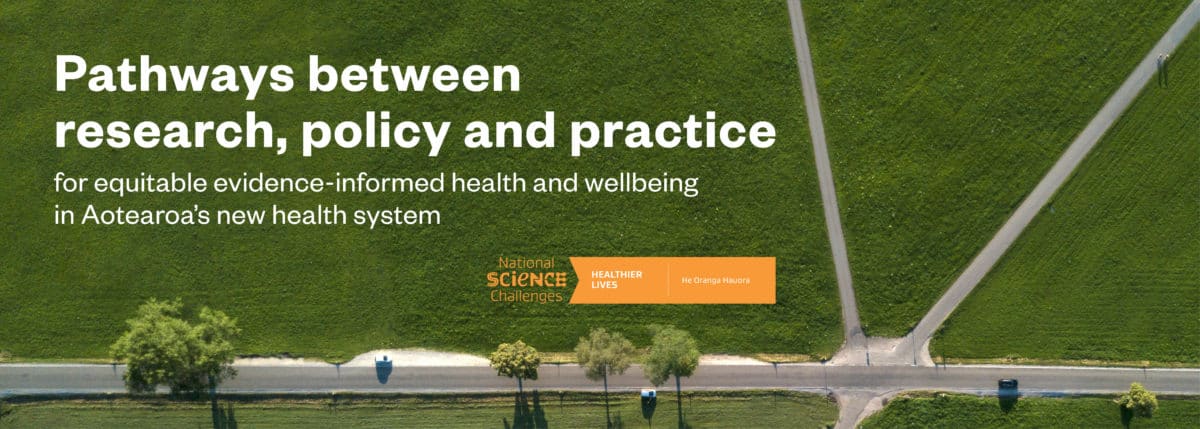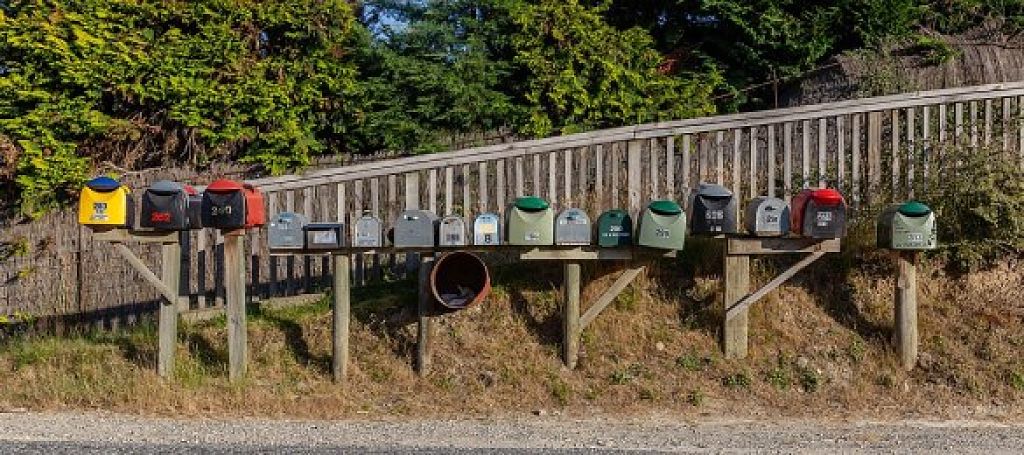Healthier Lives Newsletter December 2021
15 December 2021
In this issue:
- Message from Director
- Webinar and workshop: Pathways between research, policy and practice
- Research voices: Improving clinical pathways for cancer patients
- New research: New Zealand has reached ‘meat consumption peak’
- Congratulations: Dr Amohia Boulton
Message from Director
We closed last year with a call to acknowledge and overcome systemic racism in New Zealand’s health system. The past year has exposed just how much this is needed. Māori and Pacific communities have been the hardest hit by COVID-19 and, shamefully, this hasn’t come as a surprise.
We acknowledge the incredible mahi of our Māori and Pacific research partners over the past year, not only in rolling out the vaccine to their communities but also in providing wholistic support to them.
Healthier Lives researchers have been among those calling for equity to be front and centre in the pandemic response. It must also be central to our approach to non-communicable diseases. Associate Professor Matire Harwood sums it up well when she says that we need an mRNA vaccine against inequities and institutionalised racism in the health system, made with Mana and Mātauranga, Rangatiratanga, Ngārongoā and Aroha.
We’re hopeful that the health reforms – especially the introduction of the Māori Health Authority next year – will lead to positive change.
The past year has been busy and productive for the Challenge:
- Our research teams were creative and resilient in finding ways to continue their work despite the pandemic throwing up many hurdles. One example of this is illustrated in the story below about Dr Sandra Fitzgerald’s cancer research.
- We worked with others to commission PwC New Zealand to produce a report on The Economic and Social Cost of Type 2 Diabetes, which makes the case for urgent action to curb the rising human and economic costs of type 2 diabetes in Aotearoa.
- We commissioned a new project within our Culturally centred health interventions research theme: Systems change for health equity.
- Our Governance Group and Kāhui Māori introduced internships as part of its commitment to develop the next generation of Māori research leaders. Dr Lara Greaves and Dr Matt Edwards were welcomed in these roles.
- And last month, we held a webinar and workshop on Pathways between research, policy and practice which you can read about below.
We have enjoyed collaborating with many of you this year and look forward to doing so again in 2022.
On behalf of Healthier Lives, I wish you and your whānau a safe, healthy and happy holiday season. Meri kirihimete me te tau hou ki a koe me tō whānau hoki.
Jim Mann
Director, Healthier Lives-He Oranga Hauora

Webinar and workshop: Pathways between research, policy and practice
Almost 400 people attended a webinar and online workshop hosted by Healthier Lives last month to explore the complex pathways for translating evidence into policy and practice in Aotearoa New Zealand. The current health system reforms offer a unique opportunity to improve the way these pathways operate.
Video recordings of most webinar presentations are now available on the Healthier Lives website.
Webinar participants contributed ideas through the interactive chat. A smaller group participated in a short workshop after the webinar to give further thought to the essential elements of effective pathways and the changes needed to create these.
A report summarising the ideas drawn from both the webinar and workshop will be published next year. We hope it will spark conversations and lead to action to realise our goal of embedding evidence at the centre of decision-making in the health system.
“It needs to be clearly stated and widely understood that evidence is valuable. We have a problem when people try to fit evidence to pre-determined policy.”
“New Zealand is a small country with limited resources and big challenges so we need to systemically identify, value and mobilise the expertise we have through processes based on manaakitanga”.
Research voices: Improving clinical pathways for cancer patients

Dr Sandra Fitzgerald recently completed her PhD on the use of blood plasma biomarkers to follow the progress of cancer treatment.
In this issue she talks about her drive to translate research findings into affordable, everyday clinical practice that is available to New Zealanders regardless of where they live.
Research voices: Dr Sandra Fitzgerald
This series presents fresh perspectives on research from a variety of voices, reflecting the joys and challenges associated with research aimed at achieving equitable health outcomes in Aotearoa me Te Waipounamu.
New Zealand has reached a ‘meat consumption peak’
Australian researchers recently published an interesting opinion piece drawing on a new study analysing meat consumption in 35 countries. They identified New Zealand as one of six countries that has reached a peak in meat consumption.
At the same time, data from the latest New Zealand Health Survey shows a steady downward trend in New Zealanders’ consumption of fruit and vegetables over the last decade.

Dr Cristina Cleghorn (University of Otago Wellington) is leading Healthier Lives research investigating what a healthy, sustainable diet could look like for New Zealand.
Adoption of this low meat, low processed food diet could have a positive benefit on the health of New Zealanders as well as a beneficial impact on our environment.
We look forward to seeing the results of the optimisation modelling on this diet when they are published next year.
- How much meat do we eat? New figures show 6 countries have hit their peak The Conversation
- Sustainable New Zealand diets project

Congratulations: Dr Amohia Boulton
Congratulations to Hauora Māori researcher Dr Amohia Boulton, Director of iwi-led health research centre Whakauae Research Services Ltd, who was awarded the Health Research Council’s Te Tohu Rapuora Medal in recognition of outstanding research leadership.
Healthier Lives is fortunate to have Amohia as a member of our Governance Group and Kāhui Māori.
“It’s about making a difference to our people” – Iwi health research medal winner Health Research Council
In the news

Change needed to reduce the harm from unhealthy food and drink
Director Professor Jim Mann joined others to comment on the need for evidence-based policies aimed at reducing harm from unhealthy food and drink, following a recent report on The Economic Impact of Excess Weight in New Zealand.
“It’s the environment that has to change, starting with children.”
A bad business: The economics of obesity Stuff.co.nz

Step up for Diabetes
Director Professor Jim Mann spoke to the Otago Daily Times on Diabetes New Zealand’s inaugural Sneaker Friday in November. November was Diabetes Action Month and this year included a focus on raising awareness of the harm that can be avoided by proper footcare for those living with the disease.
Preventing diabetes harm purpose of Sneaker Friday Otago Daily Times

Professor Rod Jackson on his life and garden
Professor Rod Jackson, Healthier Lives co-principal investigator, spoke about his life, the COVID-19 epidemic and his vegetable garden in this kōrero featured on Stuff.
The Dirt: Digging deep with professor of epidemiology Rod Jackson Stuff.co.nz

Critical for vaccination efforts to have equity focus
Dr Dianne Sika-Paotonu, Healthier Lives Science Leadership Team member, spoke to the New Zealand Herald about the critical need for an equity focus in vaccination efforts following a recent survey that showed hesitancy among parents and caregivers.
“It will be critical to ensure an equity focus for ongoing and future vaccination efforts that results in appropriate and targeted approaches for these children and their families and aiga, that reduces barriers and builds trust, to ensure help and assistance gets out to those who need it most.”
The Omicron variant is currently disproportionately affecting children in South Africa, where those under 12 are unable to get vaccinated.
Hesitancy still high for parents over vaccine for 5 to 11-year-olds ahead of planned January rollout NZ Herald
Recent publications
Prapaveissis D, Henry A, Okiama E, Funaki T, Faeamani G, Masaga J, Brown B, Kaholokula K, Ing C, Matheson A, Tiatia‐Seath J, Schlesser M, Borman B, Ellison‐Loschmann L, Tupai‐Firestone R. Assessing youth empowerment and co‐design to advance Pasifika health: a qualitative research study in New Zealand. Australian and New Zealand Journal of Public Health (2021), Online.
Tane T, Selak V, Hawkins K, Lata V, Murray J, Nicholls D, Peihopa A, Rice N, Harwood M. Māori and Pacific peoples’ experiences of a Māori-led diabetes programme New Zealand Medical Journal (2021), 134:1543.
Masters-Awatere B, Cassim S, Tamatea J, Scott N, Simpson C, Paekau C. He Pikinga Waiora Kimi Ora lifestyle programme: case study of a successful community-based Indigenous diabetes intervention New Zealand Medical Journal (2021), 134:1545.


